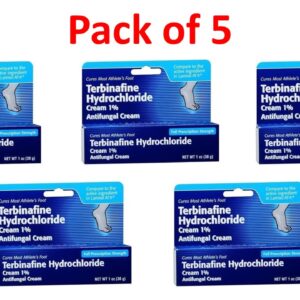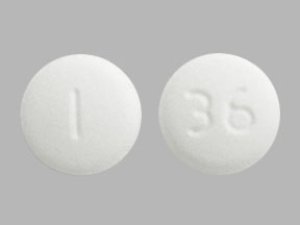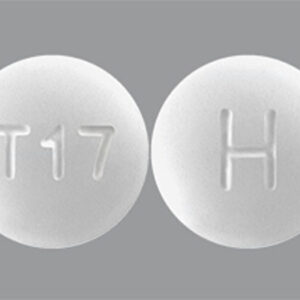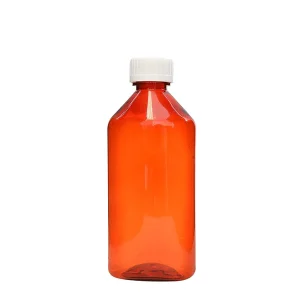Delivery Method: VIA UPS Reference #: 320-25-117 Product: Drugs Recipient:
Recipient Name
Mr. Guo Guorong
Recipient Title
Chairman & General Manager
Guangxi Yulin Pharmaceutical Group Co. Ltd.
No. 1 Chengzhan Rd.
Yulin Shi
Guangxi Zhuangzuzizhiqu, 537001
China
Issuing Office: Center for Drug Evaluation and Research (CDER)
United States
Secondary Issuing Offices
Warning Letter 320-25-117
September 30, 2025
Dear Mr. Guorong:
The United States Food and Drug Administration (FDA) inspected your drug manufacturing facility, Guangxi Yulin Pharmaceutical Group Co. Ltd., FEI 1000589993, at 1 Chengzhan Road in Yulin, Guangxi, from March 17 to 21, 2025.
This warning letter summarizes significant violations of Current Good Manufacturing Practice (CGMP) regulations for finished pharmaceuticals. See Title 21 Code of Federal Regulations (CFR), parts 210 and 211 (21 CFR parts 210 and 211).
Because your methods, facilities, or controls for manufacturing, processing, packing, or holding do not conform to CGMP, your drug products are adulterated within the meaning of section 501(a)(2)(B) of the Federal Food, Drug, and Cosmetic Act (FD&C Act), 21 U.S.C. 351(a)(2)(B).
We acknowledge receipt of your response to our Form FDA 483 and subsequent correspondence. Your response is inadequate because you failed to provide supportive documentation for evaluation or adequate evidence of corrective actions taken to bring your operations into compliance with CGMP.
During our inspection, our investigators observed specific violations including, but not limited to, the following.
1. Your firm failed to have, for each batch of drug product, appropriate laboratory determination of satisfactory conformance to final specifications for the drug product, including the identity and strength of each active ingredient, prior to release (21 CFR 211.165(a)).
Your firm failed to adequately determine the appropriate laboratory testing necessary for your (b)(4) over the counter (OTC) drug products. For example, you did not perform testing for identity and strength of the active ingredients prior to drug product release and distribution. This is a repeat observation from the 2016 inspection.
In your response, you indicate your intent to conduct active ingredient testing for retain samples of batches that have been distributed to the United States and to develop a risk assessment. However, your response is inadequate because you do not propose a comprehensive corrective action and preventive action plan to ensure that appropriate testing is conducted prior to drug product release. In addition, you do not indicate further actions that your firm will pursue for distributed drug products if test results are found to be outside specification.
Full release testing, including strength and identity testing of the active ingredients, must be performed before drug product release and distribution. Without adequate testing, you do not have adequate scientific evidence to ensure that your drug products conform to appropriate specifications before their release.
2. Your firm failed to establish laboratory controls that include scientifically sound and appropriate specifications, standards, sampling plans, and test procedures designed to assure that components, drug product containers, closures, in-process materials, labeling, and drug products conform to appropriate standards of identity, strength, quality, and purity (21 CFR 211.160(b)).
Your firm failed to demonstrate that your test methods were appropriate to assure that your product conforms to appropriate standards of identity, strength, quality, and purity. For example, your test methods and specifications are based on the Chinese Pharmacopeia (ChP). However, you failed to establish that these test methods and specifications are scientifically sound and appropriate, or that they are equivalent to or better than the current United States Pharmacopeia (USP) compendial methods.
In your response, you state that you will compare the differences in testing methods for (b)(4) and (b)(4) between the ChP and the USP, and then conduct validation on the revised methods. However, your response is inadequate because you fail to comprehensively assess the appropriateness of the methods and specifications used during system suitability and for the testing of other components and finished drug products.
Test methods must be validated to show that they are suitable for their intended use, and equivalent to or better than applicable USP compendial methods. The reproducibility of your test methods is essential to determine if your drug products meet established specifications.
Without appropriate test methods, you do not have scientific evidence to support whether your drug products meet their established specifications through their labeled expiry.
3. Your firm failed to establish and follow an adequate written testing program designed to assess the stability characteristics of drug products (21 CFR 211.166(a)).
Your firm does not have adequate stability data to demonstrate that the chemical and microbiological properties of your drug products meet established specifications and remain acceptable throughout their labeled shelf life. For example, you have not established an appropriate stability program (e.g., frequency and methods) to assess stability characteristics, to ensure that your drug products meet their appropriate strength and quality attributes through their (b)(4) shelf life.
In your response, you propose to perform tests once a year during the stability test period. However, your response is inadequate because you do not provide scientific rationale or a formal written risk assessment to support this yearly frequency.
Without appropriate stability studies, you lack adequate scientific evidence to support whether your drug products meet established specifications and retain their quality attributes through their labeled expiry.
4. Your firm failed to exercise appropriate controls over computer or related systems to assure that only authorized personnel institute changes in master production and control records, or other records (21 CFR 211.68(b)).
Your laboratory equipment lacked sufficient controls to prevent and detect deletion or manipulation of your laboratory’s electronic raw data. For example, your ultraviolet-visible (UV-vis) and infrared (IR) spectroscopy equipment was found to lack audit-trail functionality, and your analysts were able to alter and delete data, files, and folders. This is a repeat observation from your 2016 inspection.
In your response, you commit to performing audit-trail reviews for active ingredient assays before batch release. However, your response is inadequate because your commitment does not include the review of other electronic laboratory data associated with component and finished-product testing. Furthermore, you fail to provide review procedures designed to ensure data accuracy and integrity.
Your quality system does not adequately ensure the accuracy and integrity of data to support the safety, effectiveness, and quality of the drugs you manufacture. See FDA’s guidance document Data Integrity and Compliance With Drug CGMP for guidance on establishing and following CGMP compliant data integrity practices at https://www.fda.gov/media/119267/download.
Repeat Observations at Facility
In a previous inspection, dated September 29, 2016, FDA cited similar CGMP observations. You proposed specific remediation for these observations in your response. Repeated failures demonstrate that executive management oversight and control over the manufacture of drugs is inadequate.
CGMP Consultant Recommended
Based upon the nature of the violations we identified at your firm, you should engage a consultant qualified as set forth in 21 CFR 211.34 to evaluate your operations and to assist your firm in meeting CGMP requirements. The qualified consultant should also perform a comprehensive six-system audit of your entire operation for CGMP compliance and evaluate the completion and efficacy of your corrective actions and preventive actions before you pursue resolution of your firm’s compliance status with FDA. See FDA’s guidance for industry, Quality Systems Approach to Pharmaceutical CGMP Regulations, at https://www.fda.gov/media/71023/download.
Your use of a consultant does not relieve your firm’s obligation to comply with CGMP. Your firm’s executive management remains responsible for resolving all deficiencies and systemic flaws to ensure ongoing CGMP compliance.
Conclusion
The violations cited in this letter are not intended to be an all-inclusive list of violations that exist at your facility. You are responsible for investigating and determining the causes of any violations and for preventing their recurrence or the occurrence of other violations.
FDA placed all drugs and drug products offered for import into the United States from your firm on Import Alert 66-40 on September 26, 2025.
Correct any violations promptly. FDA may withhold approval of new applications or supplements listing your firm as a drug manufacturer until any violations are completely addressed and we confirm your compliance with CGMP. We may re-inspect to verify that you have completed corrective actions to any violations.
Failure to address any violations may also result in the FDA refusing admission of articles manufactured at Guangxi Yulin Pharmaceutical Group Co. Ltd., in Yulin, Guangxi, into the United States under section 801(a)(3) of the FD&C Act, 21 U.S.C. 381(a)(3). Articles under this authority that appear to be adulterated may be detained or refused admission, in that the methods and controls used in their manufacture do not appear to conform to CGMP within the meaning of section 501(a)(2)(B) of the FD&C Act, 21 U.S.C. 351(a)(2)(B).
This letter notifies you of our findings and provides you an opportunity to address the above deficiencies. After you receive this letter, respond to this office in writing within 15 working days. Specify what you have done to address any violations and to prevent their recurrence. In response to this letter, you may provide additional information for our consideration as we continue to assess your activities and practices. If you cannot complete corrective actions within 15 working days, state your reasons for delay and your schedule for completion.
Send your electronic reply to CDER-OC-OMQ-Communications@fda.hhs.gov. Identify your response with FEI 1000589993 and ATTN: Samantha Bradley.
Sincerely,
/S/
Francis Godwin
Director
Office of Manufacturing Quality
Office of Compliance
Center for Drug Evaluation and Research

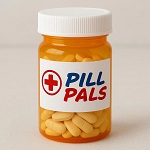 Our Pill Pass® Drug List is only $6.99 or less and Shipping is FREE!
Our Pill Pass® Drug List is only $6.99 or less and Shipping is FREE!

